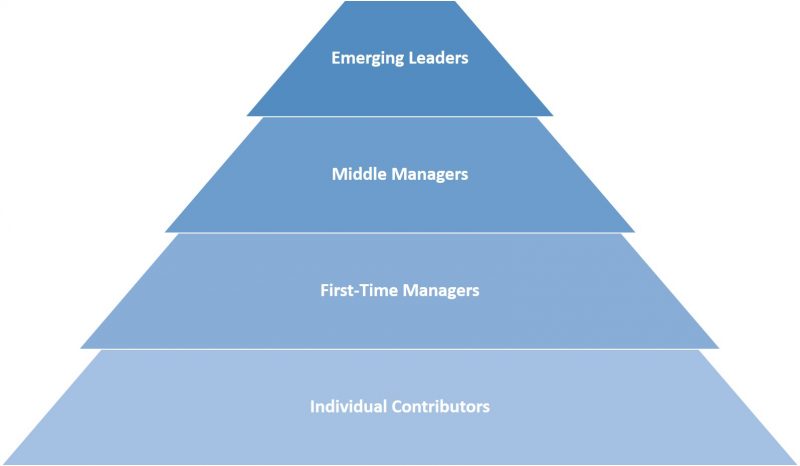Climbing up the Hills
The transition into the role of a first-time manager is a challenging process for an individual who previously worked in a specific environment, dealing with common challenges across a single functional area. The new job role is a demanding amalgamation of responsibilities that are beyond the limits of a specific area of concern. Under such a situation, the support from the organization in the form of training becomes vital for the first-time manager who needs to acquire a host of skills to handle the pressure at the managerial level.
Acclimatizing to the managerial position takes time. A new manager doesn’t learn how to manage cross-functional communication in a day. Neither do they learn how to use delegation in their first attempt. Carrying out orders from the seniors while ensuring the grass-root level functioning from the subordinates is never easy for a new manager. Dealing with conflicts is yet another source of headache, not to mention the management of time. Work-life balance is a tough ask. A manager is certainly prone to burnout especially in the modern world of business that’s nothing but a ring of competition.
Nevertheless, the training support that we’ve talked about smoothens the journey of a first-time manager to a great extent. This support also takes into account the self-development ambitions. Experience, in addition, is a great facilitator in the journey of a first-time manager who progresses with time, handling a diverse range of difficult roles and responsibilities with grace, therefore contributing to the healthy functioning of their organization.
The Mountains
The next stage in the journey of a manager arrives with experience. With a proven track record of handling difficult organizational situations, managers advance in their careers while acquiring a range of skills in the process. Apart from the management skills, a manager needs to possess several other skills such as cognitive skills or the skills that foster reasoning, innovation and accumulation of knowledge; People Skills or Social Skills that involve dealing with a diverse set of human personalities, communicating with them and maintaining strong professional ties.
Digital Competency that involves understanding critical technology while operating in a digital world of business is a must-have skill too. In addition, adaptability is also an important need in a world that’s full of uncertainties. Over and above these skillsets, an experienced mid-level manager also needs to be high on emotional intelligence. They should be self-confident while being resilient enough to bounce back from setbacks. They also are responsible for maintaining a healthy organizational culture by motivating and empathizing with their peers and subordinates alike.
Accumulation of these skills with experience is gradual. The managers in the initial and the middle stage of their journey might not be well-equipped with these skills at a particular point of time. The lack of these skills proves to be a deterrent in the smooth functioning of a manager. As a result, it becomes imperative to look at training for a before-hand preparation, even during the middle-manager stage.
Working as a manager involves a fair amount of stake for the organization and it’s rational on their part to invest in their middle manager’s training for their consistent upgradation bringing them up-to-speed with the latest developments at real-life workplace environment.
The Sky within reach
The final goal for every individual who steps into the corporate world is to reach the top level or the leadership level in an organization. After working as managers in the mid-level management, the best-performing ones represent the critical set of individuals who are eyed by the organization for stepping up a step further into the senior level management. These high-performing managers are a part of an organization’s leadership pipeline. Every organization does succession planning well in advance. It is not only convenient but also much more reliable to have home-grown leaders rather than looking for hiring the leadership talent from outside. As a result, every organization strives to nurture their leadership potential for the future.
These mid-level managers nurtured by the organization aren’t ready altogether to step into the leadership domain. Years of experience working as managers is certainly beneficial for their transition into the senior management, however there are certain gaps in the process of this transition between the middle and the senior management.
Leading across organizational boundaries, collaborating and solving complicated problems at the topmost level requires a thorough understanding and preparation. With special training programs for this critical set of managers, the organization aims at bridging the gap in the process of developing the pipeline for leadership. These programs work according to the leadership style of the managers, helping them craft vision for the organization at the topmost level. In addition, the managers acquire lots of other strategically important capabilities that eventually would be useful when they transition into the top tier of management.
These managers who are well-prepared in advance find it easy to transition into the ‘sky’ or the leadership level, eventually reaching the pinnacle only to look down being reminiscent of their successful corporate journey!



